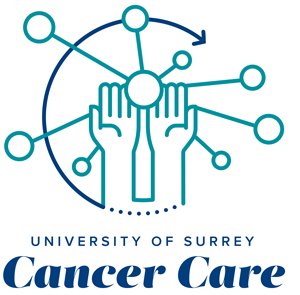Understanding inequalities in colorectal cancer care
Led by the University of Surrey, the Colorectal Cancer and Covid (COCO) study has revealed how changes prompted by the pandemic made it more difficult for people from a lower socio-economic background to access services, tell doctors about their symptoms and assert their need for ongoing care.

Katriina Whitaker, Lead for Cancer Care at the School of Health Sciences, shares the factors that influenced the COCO study, as well as the impact they hope it will have on patients in the future.
Understanding existing inequalities
We knew that there were existing inequalities in colorectal cancer and were concerned that rapid changes in the way people accessed healthcare during the pandemic may have made these inequalities worse. There are around 42,900 new cases of colorectal cancer in the UK each year and the impact of Covid-19 for diagnosis and care was of particular concern. This is because the pandemic risked perpetuating persistent social and health inequalities for patients, such as:
- Late presentation
- Less access to treatment
- Delayed treatment
- Higher mortality
- Poorer survival for more deprived groups.
We found that health inequalities were not front of mind when changes to health services were made during the pandemic. This caused a range of unintended consequences and made it harder for people from deprived backgrounds to access services and talk to doctors about their symptoms and care. Policies and processes adopted during the pandemic must be reviewed urgently to ensure they do not continue to disproportionately disadvantage those who often need help most.
Removing barriers
We hope our study will help to reduce inequalities of care and decrease barriers that may lead to delayed cancer diagnosis. We’ve made several recommendations to healthcare professionals and organisations with influence within primary and secondary care in the UK.
Improving inequalities in cancer care
We are currently working on a number of research projects related to improving early cancer diagnosis and improving inequalities in care. These projects include:
- Developing a tool to assess blood cancer awareness in the general population including understanding barriers to accessing care for people experiencing vague symptoms
- Co-producing an intervention toolkit with and for women of Black African and Black Caribbean descent to promote early presentation of breast cancer symptoms
- Understanding the role of intersectionality in driving cancer inequalities
- Work to understand and improve the uptake of formal interpreting services in primary care for those with limited language proficiency.

Cancer research cluster
We work with experts from diverse disciplines - technology, science, engineering, psychology - alongside NHS professionals, and patients and their families, from the very young to the very old. When we work together, we create innovative ways of being diagnosed quicker and living well, with and beyond cancer. Our work helps optimise cancer outcomes and impacts positively on experiences of care.
Discover more about our cancer research cluster and our areas of interest for doctoral study.
